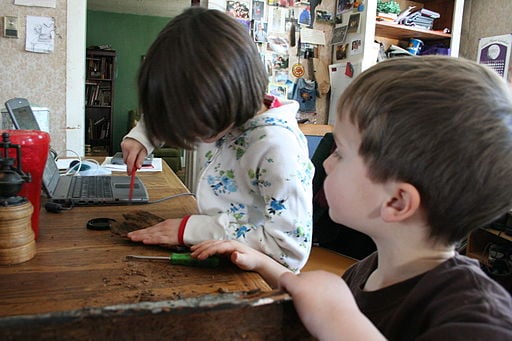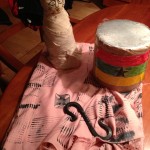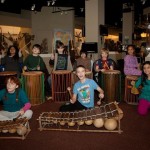 If you’ve been reading for awhile, you know that I have been pretty casual about math education. I taught high school math for eight years and taught statistics in grad school for five years, so it’s not that I don’t like math or don’t think math is important. It’s just that I believed that if you had a really deep understanding of base 10, if you could skip count without thinking, and if you could play around with fractions, you didn’t need to know a whole lot more until middle school.
If you’ve been reading for awhile, you know that I have been pretty casual about math education. I taught high school math for eight years and taught statistics in grad school for five years, so it’s not that I don’t like math or don’t think math is important. It’s just that I believed that if you had a really deep understanding of base 10, if you could skip count without thinking, and if you could play around with fractions, you didn’t need to know a whole lot more until middle school.
So that’s what we did last year: lots and lots of base 10 exploration, learning to skip count up through the 8s, and playing with pizza pies and candy bars (do you think that Hershey knew how helpful it would be to me that their bars conveniently break up into four columns and three rows?). Everyone once in a while, I would panic when I would hear what other kids were doing. But I hung tight to my belief that a deep sense of numbers would serve them better in the end than a quick survey of every math topic.
This second method, learning a little bit about everything, at increasingly difficult levels, is called spiraling. When I was in school to be a math teacher, I was a big fan of spiraling. So what happened?
I think I sensed that we needed to spend some time – leisurely, exploratory time – with numbers, time we wouldn’t have if I tried to cover every topic in a typical curriculum. Well, we’ve done that. And I’m glad we did. My kids know a lot about place value, are getting close to knowing all of their basic math facts, and have a good introductory sense of fraction.
But not a whole lot else.
Then along came IXL.com. It’s a website that lists EVERY math skill your kid should know from pre-K through algebra. For each grade, it maps those skills on to your state’s standards. For each skill, kids are presented with a mind-numbing number of kill and drill practice questions. And while I still think that extended explorations are critical, there is also a need for focused practice to obtain mastery of a skill.
The program has a reward system that is extremely motivating to my competitive sons. For each grade, you uncover “prizes” under squares on a game board when you successfully answer a certain number of problems, log a certain number of minutes, or master a certain number of skills. For reasons that our beyond my understanding, the boys are thrilled to “win” a picture of a manatee or ancient artifact.
Zach and Ezra are currently working through the 250+ skills for second grade. (I had them start with first grade because I realized that my extended explorations of last year meant that they had never seen the majority of skills listed for first grade.) Today, Zach worked his way through eight of them. He answered very simple questions about the calendar, flew through questions on place value, and had no idea what a mean, median, and mode were. The range of topics is immense, and if I were a second grade teacher, I would be overwhelmed.
With IXL, though, I’m not overwhelmed. Sometimes, the boys ask me to explain something to them. But mostly they can just figure it out. And I can sit back and drink another cup of coffee, assured that if their lives ever depend on knowing the difference between cardinal and ordinal numbers, they will survive.
And if that’s not enough, when the grandparents start to question why it seems that your children never do any real work, you can show them the online report cards and everyone will be happy.











